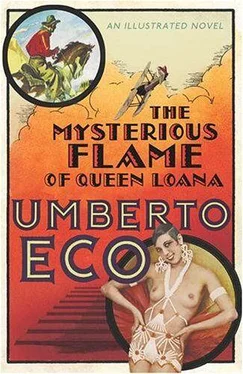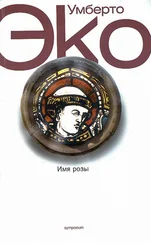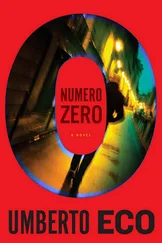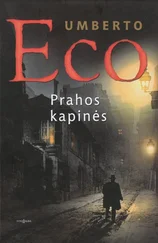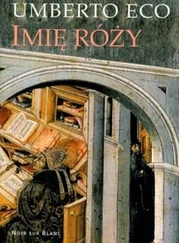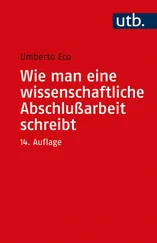Umberto Eco - The Mysterious Flame Of Queen Loana
Здесь есть возможность читать онлайн «Umberto Eco - The Mysterious Flame Of Queen Loana» весь текст электронной книги совершенно бесплатно (целиком полную версию без сокращений). В некоторых случаях можно слушать аудио, скачать через торрент в формате fb2 и присутствует краткое содержание. Жанр: Исторический детектив, на французском языке. Описание произведения, (предисловие) а так же отзывы посетителей доступны на портале библиотеки ЛибКат.
- Название:The Mysterious Flame Of Queen Loana
- Автор:
- Жанр:
- Год:неизвестен
- ISBN:нет данных
- Рейтинг книги:3 / 5. Голосов: 1
-
Избранное:Добавить в избранное
- Отзывы:
-
Ваша оценка:
- 60
- 1
- 2
- 3
- 4
- 5
The Mysterious Flame Of Queen Loana: краткое содержание, описание и аннотация
Предлагаем к чтению аннотацию, описание, краткое содержание или предисловие (зависит от того, что написал сам автор книги «The Mysterious Flame Of Queen Loana»). Если вы не нашли необходимую информацию о книге — напишите в комментариях, мы постараемся отыскать её.
The Mysterious Flame Of Queen Loana — читать онлайн бесплатно полную книгу (весь текст) целиком
Ниже представлен текст книги, разбитый по страницам. Система сохранения места последней прочитанной страницы, позволяет с удобством читать онлайн бесплатно книгу «The Mysterious Flame Of Queen Loana», без необходимости каждый раз заново искать на чём Вы остановились. Поставьте закладку, и сможете в любой момент перейти на страницу, на которой закончили чтение.
Интервал:
Закладка:
The spiritual director reads us the passages on death from The Provident Young Man: We do not know where death will surprise us- you do not know if it will take you in your beds, as you work, in the street or elsewhere; a burst vein, a catarrh, a rush of blood, a fever, a sore, an earthquake, a bolt of lightning-any could be enough to deprive you of your life, and it could happen a year from now, a month, a week, an hour, or perhaps just as you finish reading this passage. In that moment, we will feel our head darkened, our eyes aching, our tongue parched, our jaws closed, heavy our chest, our blood cold, our flesh worn, our heart broken. When we have breathed our last, our body, dressed in a few rags, will be thrown into a ditch, and there the mice and the worms will gnaw away all our flesh, and nothing of us will remain save a few bare bones and some fetid dust.
Then the prayer, a long invocation recounting each of the last throes of a dying man, the pangs in his every limb, the first tremors, the rising pallor leading to the facies hippocratica and the death rattle. Each description of the fourteen stages of our final passage (only five or six come clearly to mind) concludes, after defining the body’s attitude and the moment’s anguish, with merciful Jesus , have pity on me.
When my motionless feet shall warn me that my time on this earth is nearing its end , merciful Jesus , have pity on me.
When my numb , tremulous hands shall no longer be able to grasp you , my blessed Crucifix , and against my will shall let you fall onto the bed of my suffering , merciful Jesus , have pity on me.
When my eyes , darkened and stricken with horror by death’s imminence , shall fix their enfeebled and moribund glances on You , merciful Jesus , have pity on me.
When my pale , leaden cheeks shall inspire compassion and terror in onlookers , and my hair , damp with death’s sweat , shall stand erect , announcing the nearness of my end , merciful Jesus , have pity on me.
When my imagination , agitated by terrible , fearsome specters , shall be immersed in mortal sorrows , merciful Jesus , have pity on me.
When I shall have lost the use of all my senses , and the entire world shall have vanished from me , and I shall moan in death’s final , anguished throes , merciful Jesus , have pity on me.
Singing psalms in the dark thinking about my own death. It was just what I needed, to stop me thinking about other people’s. I relive that exercise not with terror, but with a serene consciousness of the fact that all men are mortal. That lesson in Being-toward-Death prepared me for my destiny, which is everyone’s destiny. In May, Gianni told me the joke about that doctor who advises a terminally ill patient to take sand baths. "Do they help, doctor?" "Not really, but you’ll get accustomed to being underground."
I am getting accustomed.
One evening the spiritual director stood in front of the altar balustrade, illuminated-like all of us, like the entire chapel-by that single candle that haloed him in light, leaving his face in darkness. Before dismissing us, he told us a story. One night, in a convent school, a girl died, a young, pious, beautiful girl. The next morning, she was stretched out on a catafalque in the nave of the church, and the mourners were reciting their prayers for the deceased, when all of a sudden the corpse sat up, eyes wide and finger pointing at the celebrant, and said in a cavernous voice, "Father, do not pray for me! Last night I had an impure thought, a single thought-and now I am damned!"
A shudder travels through the audience and spreads to the pews and the vaults, seeming almost to make the candle flame flicker. The director exhorts us to go to bed, but no one moves. A long line forms in front of the confessional, everyone intent on giving in to sleep only after the merest hint of sin has been confessed.
In the menacing comfort of dark naves, fleeing the evils of the century, I spend my days in icy ardors, in which even Christmas carols, and what had been the comforting crèche of my childhood, become the birth of the Child into the horrors of the world:
Sleep , do not cry , oh my sweet Jesus ,
sleep , do not cry , my beloved Redeemer…
Oh beautiful child , hasten to shut
your sweet-natured eyes in horror extreme.
That’s why they sting , the straw and the hay ,
Because your bright eyes are shimmering still.
Hasten to close them , so sleep at least may
offer its remedy for every ill.
Sleep , do not cry , oh my sweet Jesus ,
sleep , do not cry , my beloved Redeemer…
One Sunday, Papà, a soccer fan and a bit disappointed in that son of his who spends his days ruining his eyes over books, takes me to a match. It is a minor contest, the stands are nearly empty, speckled with the colors of the few onlookers, blotches on white bleachers that are scorching hot in the sun. The game is stopped by a referee’s whistle, one captain protests the call, the other players move around the field aimlessly. Two colors of jerseys in disarray, bored athletes milling about a green field, a scattered mess. Everything stalls. What happens unreels now in slow motion, as in a parochial movie theater when the sound suddenly cuts off with a meow , movements become more careful, then jerk frame by frame to a stop on a single image, which dissolves on the screen like melting wax.
And in that moment I experience a revelation.
I realize now that it was a painful sense that the world is purposeless, the lazy fruit of a misunderstanding, but in that moment I was able to translate what I felt only as: "God does not exist."
I leave the match in the grip of lacerating regrets and run straight to confession. The fiery confessor from my previous visit now smiles, indulgent and benevolent, asks me how I got such a silly notion in my head, mentions the beauty of nature, which points to a creative and ordering will, then talks at length about the consensus gentium: "My child, the greatest writers, Dante, Manzoni, Salvaneschi, have believed in God, and great mathematicians like Fantappie, and you want to be lesser?" The consensus of people, for the moment, calms me. It must have been the match’s fault. Paola told me I never went to soccer matches, at most I would watch the finals of the World Cup on television. I must have had it in my head, from that day on, that going to a match meant losing my soul.
But there are other ways to lose it. My schoolmates begin telling stories in whispers and giggles. They drop hints, they share magazines and books stolen from home, they speak about the mysterious Casa Rossa, which we are not yet old enough to visit, they empty their wallets at the cinema on comedies featuring scantily clad
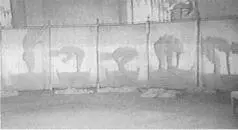
women. They show me a photo of Isa Barzizza in skimpy panties, on stage in a variety show. I cannot refuse to look without seeming like a pharisee, so I look, and as we know anything can be resisted except temptation. I enter the movie house furtively, early in the afternoon, hoping not to run into anyone who knows me: in The Two Orphans (with Totò and Carlo Campanini), Isa Barzizza and several other convent girls, in defiance of the mother superior’s orders, bathe naked.
Читать дальшеИнтервал:
Закладка:
Похожие книги на «The Mysterious Flame Of Queen Loana»
Представляем Вашему вниманию похожие книги на «The Mysterious Flame Of Queen Loana» списком для выбора. Мы отобрали схожую по названию и смыслу литературу в надежде предоставить читателям больше вариантов отыскать новые, интересные, ещё непрочитанные произведения.
Обсуждение, отзывы о книге «The Mysterious Flame Of Queen Loana» и просто собственные мнения читателей. Оставьте ваши комментарии, напишите, что Вы думаете о произведении, его смысле или главных героях. Укажите что конкретно понравилось, а что нет, и почему Вы так считаете.
